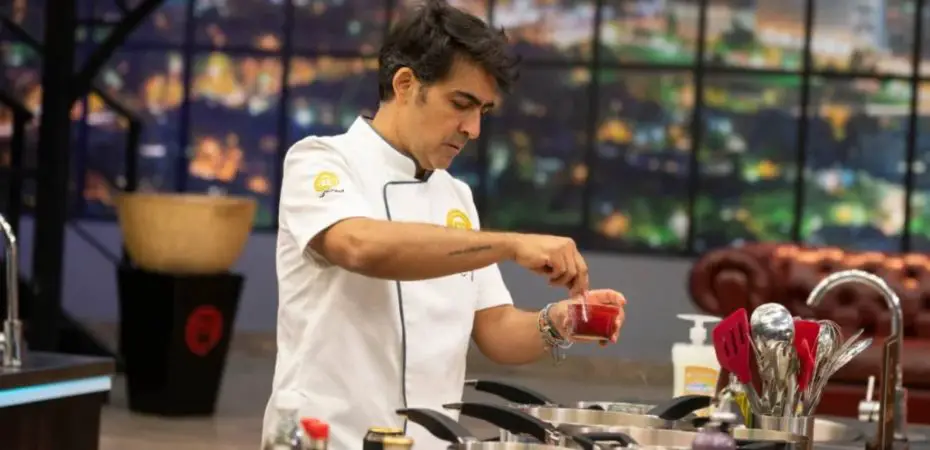
Famous International Chef Chris Carpentier On The Flavor Of Costa Rica: I Found It Very Rich And Interesting
Known simply as“Chris,” this Chilean opened a restaurant, culinary school, and store called Ilatina in Bogotá months ago. Last week, he arrived in Costa Rica and so far has tried very little of Costa Rican cuisine.
But from what he has eaten, he assures that the flavor“seemed very rich and interesting to me.” So much so that he is eager to try a tamale. But one thing's for sure: I wouldn't want to eat one with raisins or prunes.“Sweets with sweets and salty with salty.”“I'm very orthodox,” he said with a laugh in an interview.
Carpentier and Costa Rican cuisinePrecisely, Carpentier spoke about the lesser-known or less widespread Latin American cuisines in the world. And, in the case of Costa Rican cuisine, the first thing he emphasized is that“there is a lot of produce here, and it's a blessing.”
“I would tell them (those who think Costa Rican cuisine is not well-known or refined) that instead of seeing the glass as half empty, they should see it as half full.”“If Europe had continued complaining after World War I and World War II, then it wouldn't be what it is today gastronomically speaking.”
“It's true that they started earlier, but they don't have the product.” The Belgians boast about having the best chocolate, but they don't have the cocoa. We do have it. Here, there is plenty of raw material.“We have it everywhere, there's flavor and there's also history,” he expressed.
Is he tough?“No, I'm passionate and demanding.”During his time on several editions of Masterchef Colombia, Carpentier was known for his emphatic and direct opinions, which led social media to label him as a“tough chef.”
But this 51-year-old South American with an easy and relaxed manner acknowledges that, far from being fierce, he is passionate and demanding.“There's a generation of glass, a generation very sensitive to the world of cooking.” MasterChef clearly started in its early days by bringing the rigor of the kitchen to television.
“Before, bad food was spat out, trash was thrown away, it was mistreated, but that's how the kitchen was back then.” Clearly, nowadays that can no longer be done. Neither the participant nor the audience will accept it. It's not even happening in the real kitchens.
“But when one asks if we think we were disrespected or too grateful (as judges), I believe it was a reflection of how the products were handled in the kitchen.”“What was said was always done with respect but with demand (...) Tradition must be respected.”“I am very respectful of flavors, aromas, and traditions,” he asserted.
For those who wish to venture into the world of cooking or are already in this profession, the Chilean trained in the United States gave them a piece of advice.
“Do you want to be a professional in this?” To be a good cook, you first have to know the rules, you have to walk before you can run. So, learn the technique, learn the basics.
Finally, the chef confessed something he will do before leaving Costa Rica:“I hope to take with me as many ideas and inspirations as possible to create a new menu.”->At Resonance, we aspire to live in harmony with the natural world as a reflection of our gratitude for life. Visit and subscribe at Resonance Costa Rica Youtube Channel @resonanceCR
Legal Disclaimer:
MENAFN provides the
information “as is” without warranty of any kind. We do not accept
any responsibility or liability for the accuracy, content, images,
videos, licenses, completeness, legality, or reliability of the information
contained in this article. If you have any complaints or copyright
issues related to this article, kindly contact the provider above.


















Comments
No comment